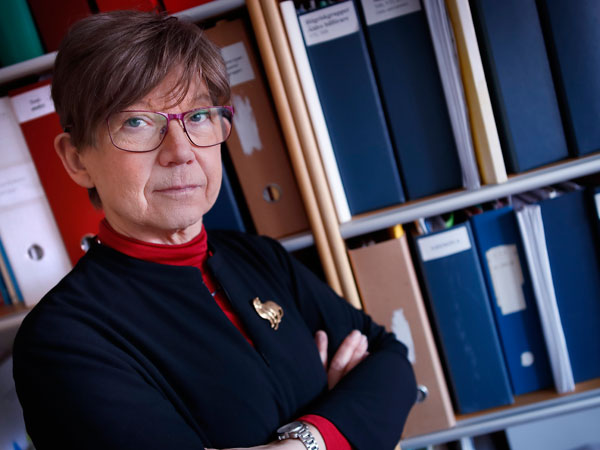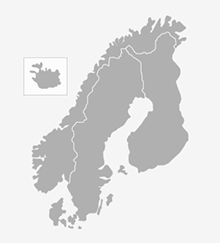VTI is participating in the research project TInnGO – Transport Innovation Gender Observatory. It is the first major EU project of its kind relating to the transport sector, gender equality and diversity. The VTI project manager Lena Levin appreciates the emphasis on the social dimension.
“This is probably the first time that the EU is funding such a large gender equality project focusing on everyday transportation,” says Lena Levin.

Senior researcher Lena Levin is happy to see the emergence of issues relating to gender equality and diversity in the transport sector and within the funding organisations. Photo: Hejdlösa Bilder
The researchers must first investigate the gender equality and diversity integration of the European transport sector today. The project will then primarily focus on increasing knowledge where needed, promoting equality between women and men and increasing diversity, especially when it comes to the development of smart mobility.
“Smart mobility is often associated with automation and digitisation – however, technology is not the main focus here, but rather the actors who are planning, managing and using the transport system.”
Being involved in a European research project with social aspects is a real feather in VTI’s cap,” she says. The project is not only about gender equality, but also about intersectional diversity, which also entails taking aspects into consideration such as people’s age, functional variations and varying resources.
It is true that Sweden ranks highly in gender equality analyses, but there are glitches and knowledge gaps here too, as well as a lack of procedures and tools in the transport planning.
Survey on several levels
Together with the University of Copenhagen, VTI will survey representation within the transport sector at the national, regional and municipal level. What are the travel patterns and which different modes of transport are employed? What methods and tools are available to planners, and which ones are missing? Based on this, the researchers will then continue to develop their knowledge.
The subject covers roads for quick bicycle commuting, automated buses and trams in urban areas, and adaptable public transport solutions for suburbs and rural areas. The researchers will conduct case studies on various mobility solutions, road and vehicle designs, as well as service and support for those who cannot manage on their own in an increasingly digitised system.
The EU project includes 20 European partners divided into ten geographically based hubs, which are to work with gender mainstreaming. The project will run for three years and is financed by the European Commission through H2020 with an amount of EUR 3.9 million, of which VTI will receive approximately EUR 369,000. The entire project is coordinated by Andree Woodcock, Coventry University, UK.
 Contact:
Contact:
Lena Levin
lena.levin@vti.se
VTI, Sweden






Follow us: